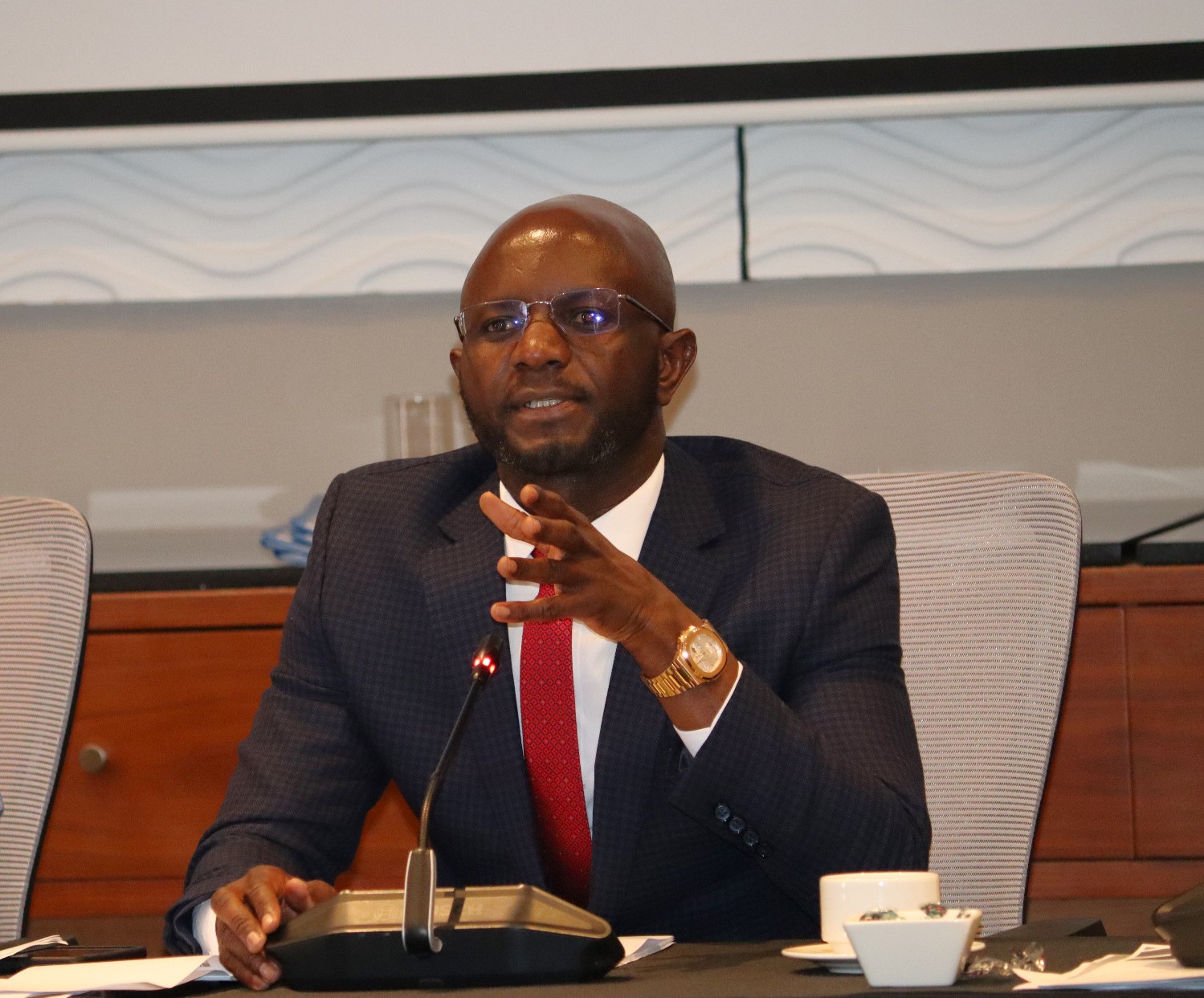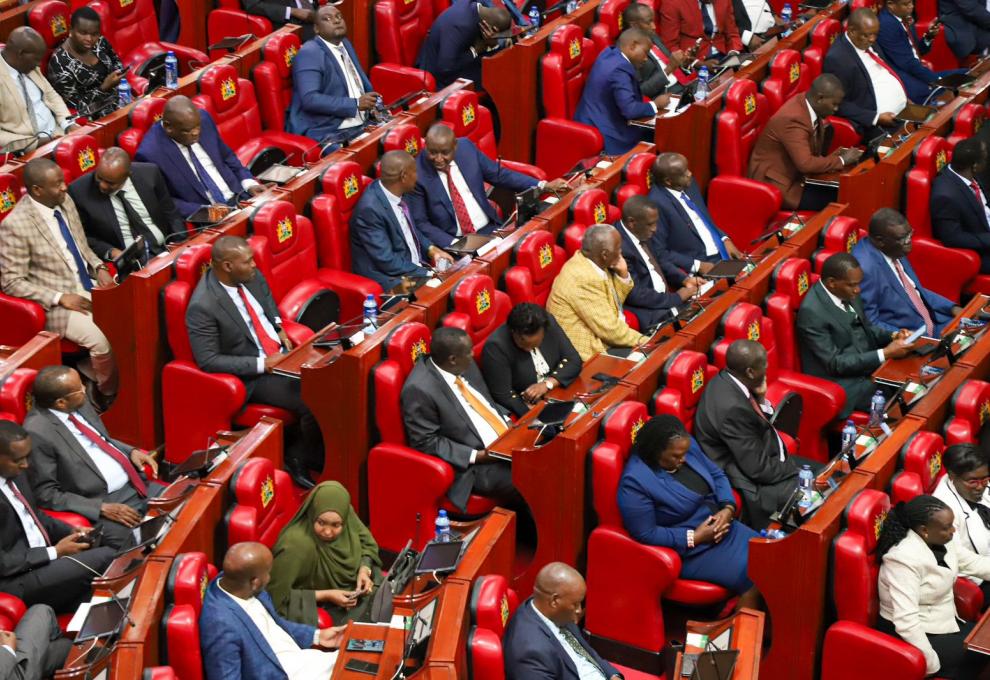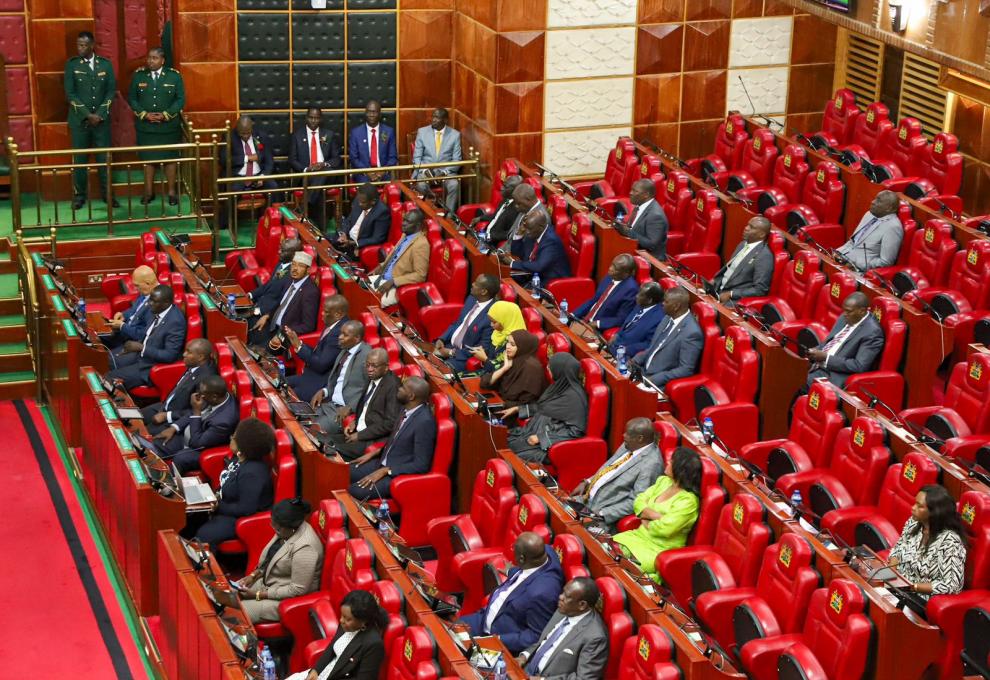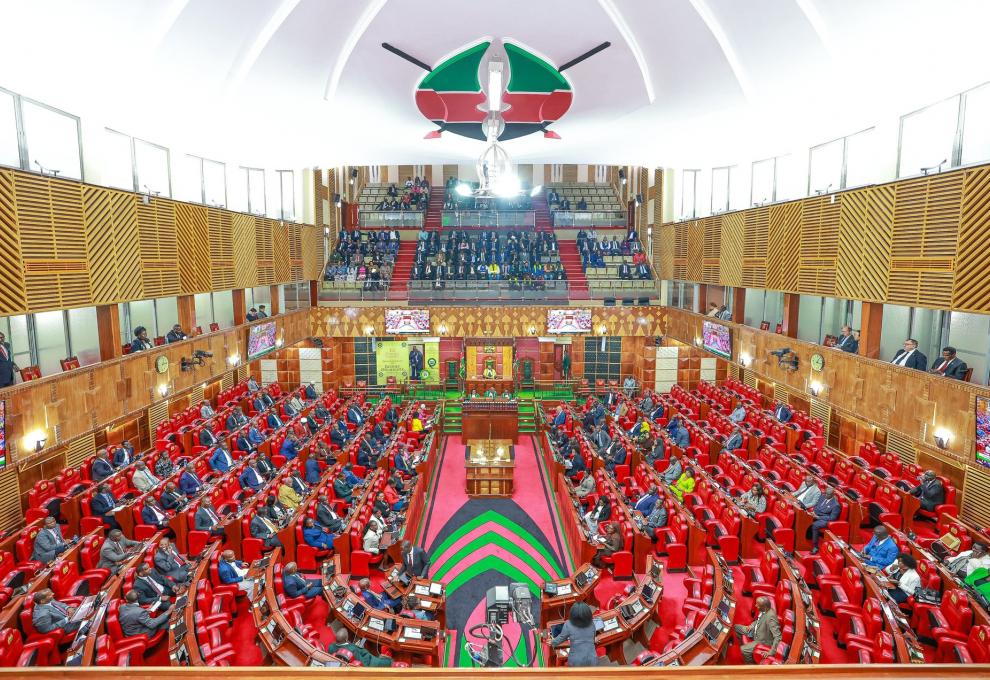𝐁𝐔𝐃𝐆𝐄𝐓 𝐂𝐎𝐌𝐌𝐈𝐓𝐓𝐄𝐄 𝐈𝐍𝐓𝐄𝐑𝐑𝐎𝐆𝐀𝐓𝐄𝐒 𝐁𝐔𝐃𝐆𝐄𝐓 𝐄𝐗𝐄𝐂𝐔𝐓𝐈𝐎𝐍 𝐅𝐎𝐑 𝐅𝐘 𝟐𝟎𝟐𝟒/𝟐𝟓 𝐀𝐍𝐃 𝟏𝐒𝐓 𝐐𝐔𝐀𝐑𝐓𝐄𝐑 𝐅𝐎𝐑 𝐓𝐇𝐄 𝐅𝐘 𝟐𝟎𝟐𝟓/𝟐𝟔, 𝐒𝐄𝐄𝐊𝐒 𝐂𝐋𝐀𝐑𝐈𝐓𝐘 𝐎𝐍 𝐄-𝐆𝐏𝐒 𝐈𝐌𝐏𝐋𝐄𝐌𝐄𝐍𝐓𝐀𝐓𝐈𝐎𝐍
Members of the Budget & Appropriations Committee, chaired by Hon. Samuel Atandi, have demanded greater accountability in government spending, following concerns on low absorption of funds in the 1st quarter of Financial Year 2025/26, implementation of the Budget for FY 2025/26, ballooning pending Bills, and procurement delays owing to the electronic Government Procurement Systems (e-GPS).
Appearing before the Committee, the Deputy Controller of Budget (COB), FCPA Stephen Masha, furnished Members of BAC with audit findings for the 1st quarter of the current financial year Budget, noting that challenges in adopting the new procurement system have contributed to the low absorption of funds.
"The e-GPS has posed challenges to the procurement process due to a learning curve, resistance from some users, integration issues with internal systems, and vendor-related problems," he said.
Members of the Committee raised concerns on the approval of Article 223 requests by the Controller of Budget, exemptions granted to some government entities from the use of the e-GPS framework and ballooning pending Bills by Counties despite full disbursement of funds by the National Treasury.
The Members of Parliament also sought clarity on whether the office of the Controller of Budget releases Development funds to the Recurrent vote and the operational coordination, or rather twinning between the National Treasury, Central Bank, and COB.
In response, the Deputy Controller of Budget defended the twinning, noting it has eliminated voiding of transactions and safeguarded diversification of funds. On County Pending Bills management by Counties, he attributed the delays to the late disbursement of final tranches, saying Counties don't get enough time to process and pay vendors.
Comparing the external and internal Debt borrowing, FCPA Masha acknowledged the negative impact of domestic borrowing on account of driving out local businesses but on the contrary urged the Committee to seek clarification from the National Treasury on why the country has embarked on domestic borrowing.
He however called on joint efforts in tackling the sustainability of the Public Debt to ensure that the Debt levels don't go high to avoid the scenario of Debt default, which would have serious consequences to the economy.
The Deputy COB recommended better planning and prioritisation of essential services during Budget formulation and implementation alignment of expenditures with operational realities and ensuring that borrowing supports implementation-ready development projects with measurable economic returns.
The Committee will incorporate the submissions from the office of the Controller of Budget into their report alongside those from the National Treasury and the office of the Auditor General to inform oversight and ensure accountability and alignment of public funds.
The Chairperson for the Budget & Appropriations Committee, Hon. Samuel Atandi, during a meeting with various stakeholders on Budget implementation for quarter 1 FY 2025/26
The Deputy Controller of Budget, FCPA Stephen Masha (left) in the company of officers from the Office of the Controller of Budget, presenting key findings on the implementation of FY 2024/25 and the first quarter of 2025/26 before the Budget & Appropriations Committee.
















